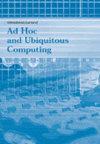电动汽车VANET仿真工具中的能耗模型:文献综述
IF 0.7
4区 计算机科学
Q4 COMPUTER SCIENCE, INFORMATION SYSTEMS
International Journal of Ad Hoc and Ubiquitous Computing
Pub Date : 2023-01-01
DOI:10.1504/ijahuc.2023.127764
引用次数: 1
摘要
电动汽车(ev)已被广泛认为是智能交通系统(its)的关键技术,使公共和私人交通服务更加经济和生态。对于电动汽车而言,节能是促进智能导航和延长续驶里程的可行方案。真实的交通模拟有助于电动汽车在未来市场的大规模推广。特别是,车辆自组织网络(VANETs)仿真工具通常集成了用于计算车辆能耗的能量模型。因此,如何在此类车辆的交通仿真器中集成可靠、准确的能量模型对电动汽车提出了新的挑战。在本文中,我们提出了一个关于能源模型的深入研究,详细阐述了汽车行业,以提供有价值的增强VANET模拟器。主要目标是在VANET仿真工具中建立对电动汽车消耗和再生的准确估计。本文章由计算机程序翻译,如有差异,请以英文原文为准。
Energy consumption models in VANET simulation tools for electric vehicles: a literature survey
Electric vehicles (EVs) have been widely recognised as a key technology of the intelligent transportation systems (ITSs) to make both public and private transportation services more economic and ecological. The energy-saving in the case of EVs is a viable solution to promote smart navigation and extending the driving range. Realistic traffic simulations contribute to the large-scale diffusion of EVs in the future market. In particular, vehicular ad hoc networks (VANETs) simulation tools integrate often an energy model for calculating the vehicle energy consumption. Hence, the EVs raise a new challenge about integrating reliable and accurate energy models in the traffic simulators for this category of vehicles. In this paper, we present a thorough study about energy models elaborated in the automotive sector to provide valuable enhancements to VANET simulators. The main goal is to establish an accurate estimation of the EV consumption and recuperation in VANET simulation tools.
求助全文
通过发布文献求助,成功后即可免费获取论文全文。
去求助
来源期刊
CiteScore
2.00
自引率
0.00%
发文量
69
审稿时长
7 months
期刊介绍:
IJAHUC publishes papers that address networking or computing problems in the context of mobile and wireless ad hoc networks, wireless sensor networks, ad hoc computing systems, and ubiquitous computing systems.

 求助内容:
求助内容: 应助结果提醒方式:
应助结果提醒方式:


